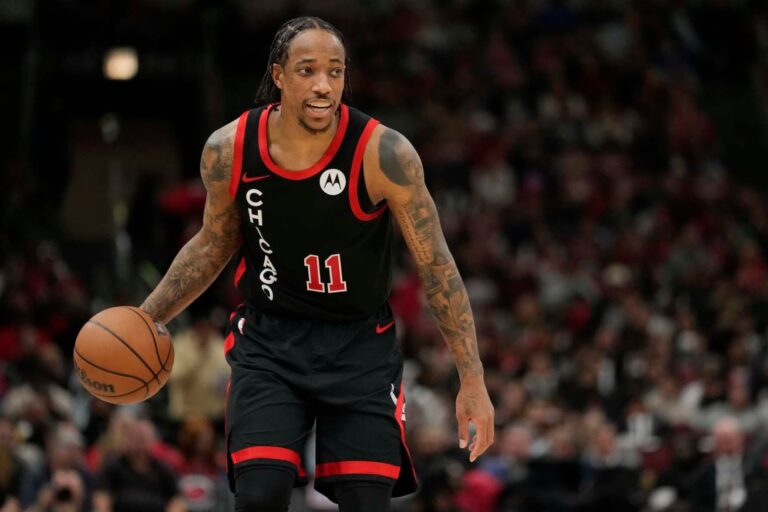DeMar DeRozan and the Kings Reach a $74 million Sign-and-Trade Agreement with the Bulls.
It appears that the Chicago Bulls are at last gazing onto the destiny they have laboriously avoided. According to ESPN’s Adrian Wojnarowski, veteran forward DeMar DeRozan is leaving the Bulls in a sign-and-trade to join the Sacramento Kings, capping his three-year stay in Chicago. According to Wojnarowski, the deal sends Chris Duarte, two second-round picks, and cash to the Bulls, while the Kings trade Harrison Barnes and an unprotected 2031 draft pick to the San Antonio Spurs.
According to Wojnarowski, DeRozan will ink a three-year, $73.7 million contract with Sacramento, including a $10 million third-year guarantee. Here is a summary of the agreement: DeMar DeRozan, to the Kings. To Bulls: Cash, two second-round selections, and Chris Duarte. Harrison Barnes, unprotected 2031 draft selection traded to the Spurs.
Chris Haynes of TNT and Bleacher Report both claim that De’Aaron Fox had a “pivotal role” in the Kings’ acquisition of DeRozan. Due to his approaching free agency, DeRozan’s future with the Bulls was a narrative that ran throughout the season. Chicago made it apparent that it intended to keep him in the summer by holding onto him through the NBA trade deadline. According to Sam Amick of The Athletic, the 34-year-old stated on February 9 that he “is happy there and would like to return—if the money is right.”
After he saw the Bulls suffer their second straight losing season, there might have been more at stake than just money. After Game 1, their season began with a players-only meeting, and things didn’t get much better after that. After falling to the Miami Heat in the play-in round, the squad went 39–43 and placed ninth in the Eastern Conference. Chicago is the only NBA team that seems to be perpetually mired in mediocrity, and the team has been there for a long time.
The plan outlined by Artūras Karnišovas, executive vice president of basketball operations, was ruined when Lonzo Ball’s career was interrupted by knee problems. However, it’s important to consider whether a scheme with Ball’s significant influence is inherently faulty. Rather than beginning anew, the front office wasn’t even making every effort to extract as much as possible from a small roster. Chicago failed to sign any players by the February deadline in addition to not trading DeRozan or Zach LaVine.


